Introduction: Unearthing a Mystery
In 2003, archaeologists unearthed one of the most remarkable finds in Irish history: Oldcroghan Man, a 2,000-year-old naturally preserved bog body in County Offaly, Ireland. His extraordinary preservation and unique characteristics provide a fascinating window into life during the Iron Age, shedding light on ancient practices, social hierarchies, and rituals.
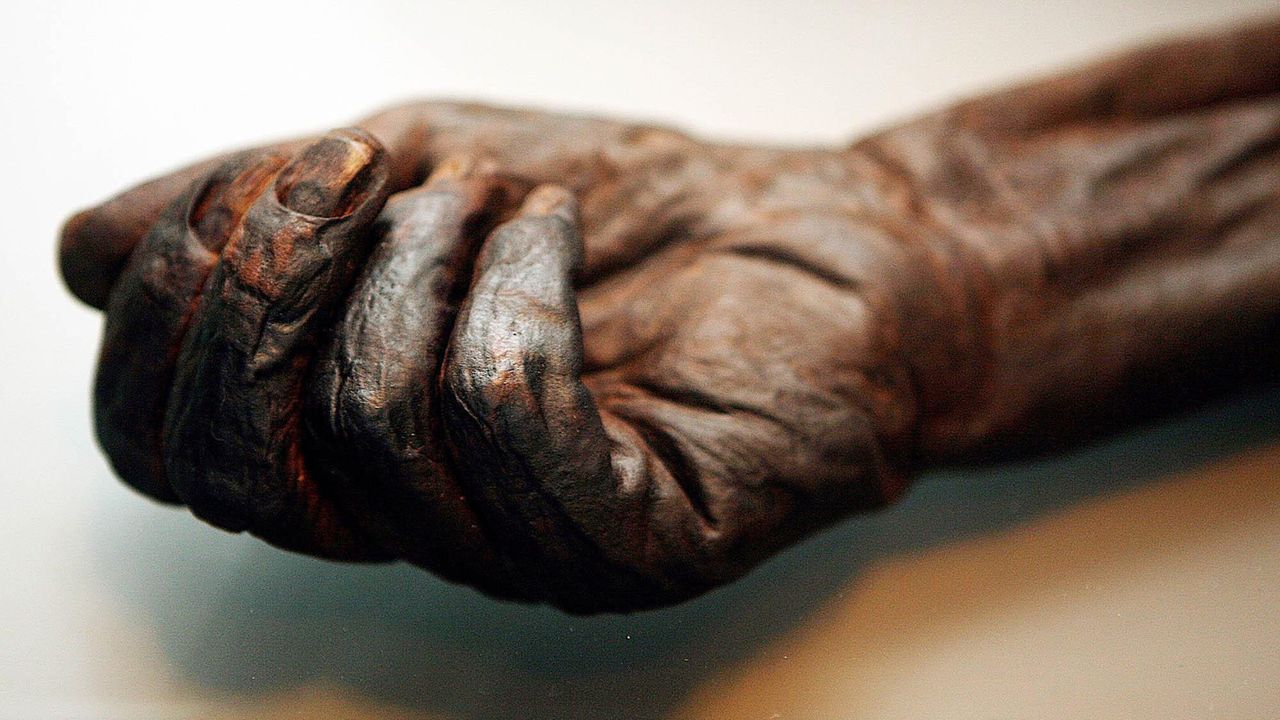
An Unusually Tall Figure
At an imposing 6 feet 6 inches (1.98 meters) tall, Oldcroghan Man’s height stands in stark contrast to the average height of his contemporaries, approximately 5 feet 5 inches (165 cm). Such a towering stature not only highlights his uniqueness but also raises questions about his role in society. Was he a leader, a warrior, or a figure of ceremonial importance? His physical presence alone would have made him a significant individual during his lifetime.
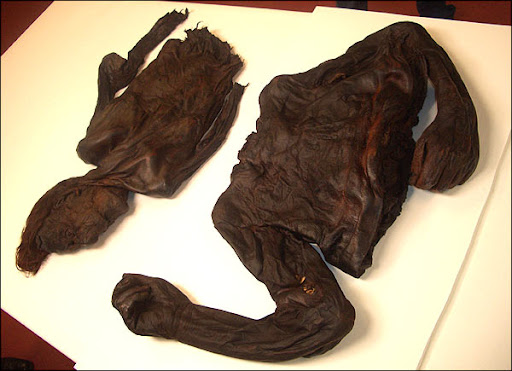
Life of Privilege
Detailed studies of his remains offer a glimpse into his privileged lifestyle. His manicured nails, free of wear typically associated with manual labor, suggest he belonged to an elite class. Furthermore, dietary analysis revealed a meat-rich diet, uncommon for the majority of the population, who largely relied on plant-based sustenance. His final meal, consisting of wheat and buttermilk, adds another layer of intrigue, possibly linking him to ritualistic practices.
Preservation Through the Ages
The exceptional preservation of Oldcroghan Man is owed to the unique anaerobic, acidic conditions of the bog. These natural processes mummified his skin and soft tissues, allowing scientists to analyze his body in extraordinary detail. His remains are a testament to how the bog environment serves as a time capsule, maintaining physical features and even internal organ contents for millennia.
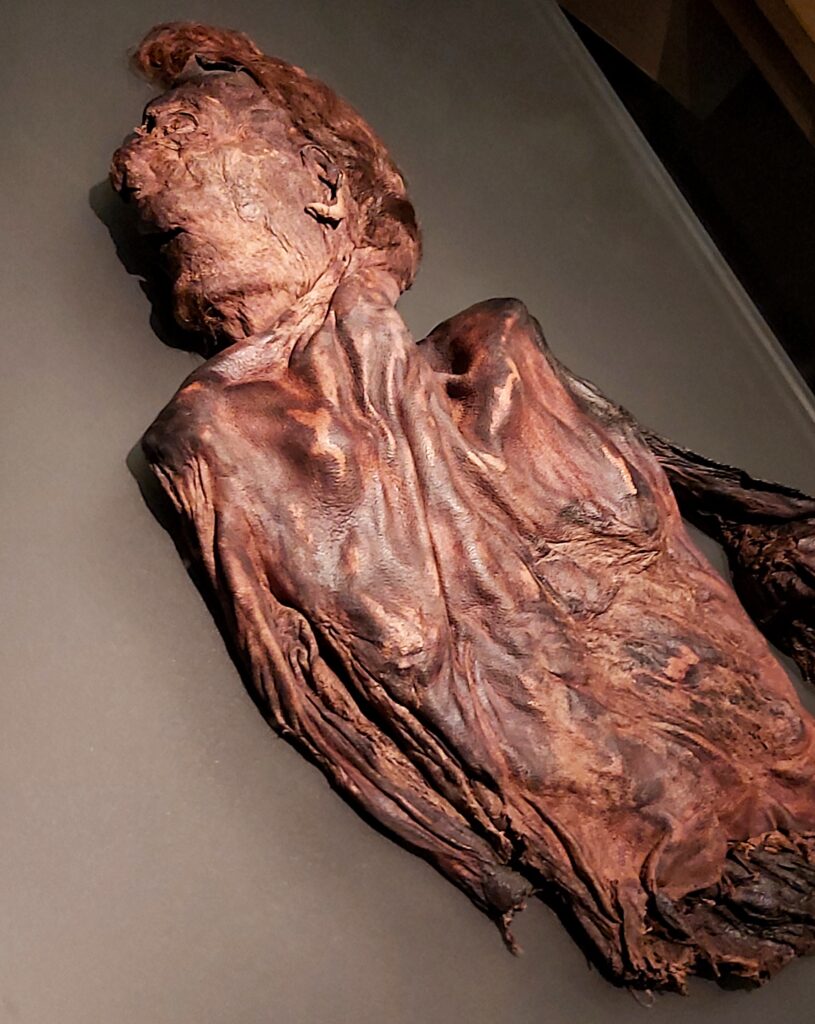
Ritualistic Context: Kingship and Sacrifice
Oldcroghan Man’s discovery aligns with theories of ritualistic kingship or human sacrifice, practices believed to have been prevalent in Iron Age Ireland. The presence of armlets found with him, along with the location and condition of his body, suggests he may have been sacrificed to appease gods or to symbolize the end of a failed reign. These rituals often had strong ties to fertility and agricultural cycles, reinforcing the connection between ancient societal structures and their dependence on nature.
The Bog Bodies Research Project
Oldcroghan Man’s analysis was part of the Bog Bodies Research Project, an initiative led by the National Museum of Ireland to uncover the stories behind these mysterious finds. Using advanced technologies like CT scans and isotopic analysis, researchers have been able to piece together details of his life, diet, and death, offering invaluable insights into Iron Age culture.
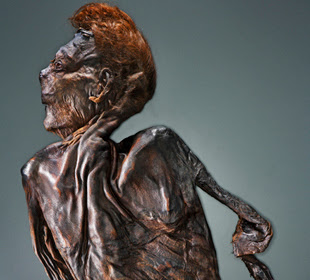
Connecting the Past: Clonycavan Man
Oldcroghan Man is not alone in representing Ireland’s Iron Age. The discovery of Clonycavan Man, another bog body found in County Meath, further corroborates theories of ritualistic sacrifices and social stratification. Together, these individuals form a mosaic of life, death, and belief in ancient Ireland, highlighting the spiritual and political complexities of the era.
Exhibition and Legacy
Today, Oldcroghan Man and Clonycavan Man are part of the “Kingship and Sacrifice” exhibit at the National Museum of Ireland in Dublin. Their remains serve as poignant reminders of Ireland’s rich, albeit mysterious, past. Visitors to the exhibit gain a rare opportunity to connect with history, exploring the lives and deaths of these ancient figures.
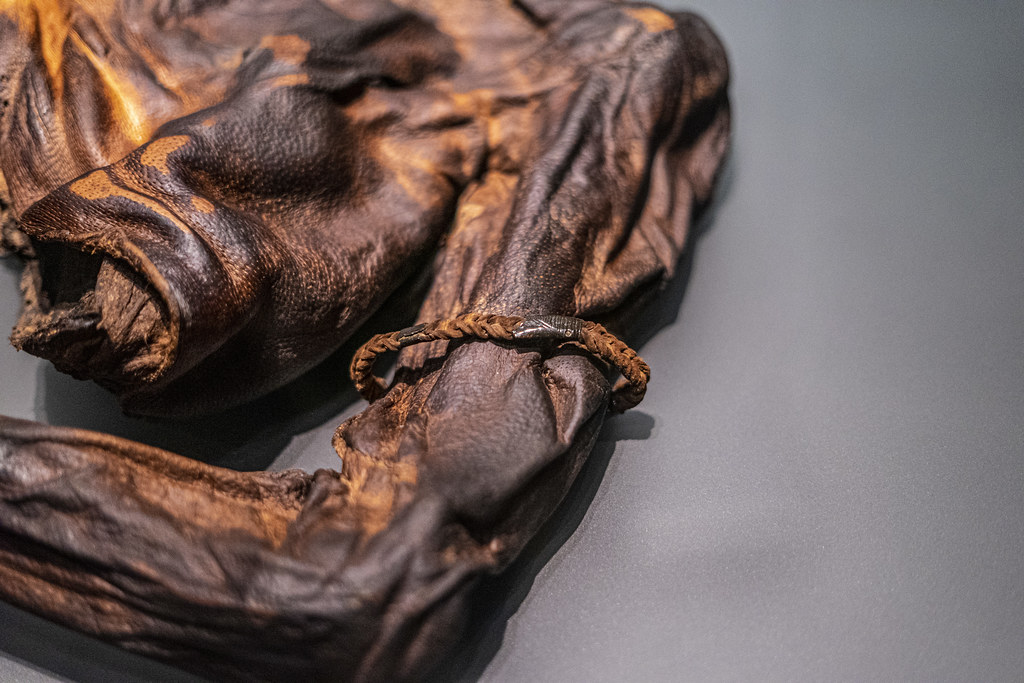
Conclusion: A Window into the Iron Age
The discovery of Oldcroghan Man represents more than just a well-preserved body; it is a story of culture, ritual, and societal structure during a pivotal era in Ireland’s history. As researchers continue to unlock the secrets held within his remains, Oldcroghan Man stands as a symbol of the enigmatic world of the Iron Age and its enduring legacy in shaping modern understanding of the past.

